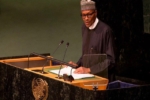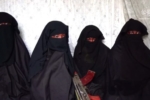Nigeria’s determination at recovering stolen wealth stashed in the United Kingdom may soon yield results as negotiations between the Federal Government and UK authorities have reached advanced stage.
Speaking in New York, yesterday, the Executive Secretary, Presidential Advisory Committee against Corruption, Prof. Bolaji Owosanoye, disclosed that the UK government will give the Federal Government information about Nigerians who own property in that country next year.
The negotiations are a fall out of the world summit against corruption hosted by UK in 2016 in London.
Owosanoye said the measure being taken by the governments of both countries was a step forward in the fight against corruption.
“There’s no doubt rogues in government oppress and impoverish their people by corruption and this must be sanctioned by collective action. We need to make sure there is no safe haven for you (corrupt officials) to run to.
“Britain has promised by 2018, she will provide Nigeria with the information about who owns what and where; that’s very helpful. These include all the houses that have been bought by public officials or accounts that are held by public officials on which they are right now not paying taxes or which they cannot explain the sources.
“So if you cannot buy a house in England, you have to look for somewhere else. But if all countries criminalise this, then it becomes much more difficult unless you want to buy the house on Mars,” he said.
The UK High Commission in Abuja, yesterday, confirmed to Daily Sun that its government was determined to expose, punish and drive out corruption wherever it exists. In statement signed by the Press and Public Affairs Officer, Joe Abugu, the Commission drew attention to the Anti-Corruption Summit held on May 12, 2016.
The statement read in part: “On May 12, 2016, the United Kingdom hosted the Anti-Corruption Summit to step up global action to expose, punish and drive out corruption in all walks of life. At the summit held in London, world leaders agreed a series of landmark commitments to expose, punish and drive out corruption wherever it exists.
“The former Prime Minister announced a number of new measures to help prevent corrupt individuals from hiding stolen money in the UK. These include the creation of a Global Forum for Asset Recovery bringing together governments and law enforcement agencies, and a new UK public register of beneficial ownership to help prevent corrupt individuals from moving, laundering and hiding illicit funds through London’s property market.”
It was the first summit of its kind, bringing together world leaders, business and civil society to agree a package of practical steps to: expose corruption, punish the perpetrators and support those affected by corruption.
Owosanoye also explained that Nigeria and other African countries, who are victims of illicit financial flows, must challenge developed countries to block illicit financial flows from developing countries.
“Receiving states, the countries of the North need to be proactive to block the proceeds of crime even before a request is made by victim countries. This is because, in many situations, it is clear that illegality is taking place.
“We think reversing the burden of proof to improve the confiscation of criminal proceeds of crime would help, especially, when we are going after the asset and not necessarily the person.
“If the person who claims to own the asset would not cooperate in giving information, then this should be a point in favour of the state,” Owosanoye said.
He contended that the burden of proof for criminal proceeds should shift to the suspect and not the government, citing the case of a former Managing Director of the Nigerian National Petroleum Corporation (NNPC).
“A former Managing Director of the NNPC was found with $9 million cash and over N70 million in his house. He said the money is a gift. He was asked if he could tell the very generous angels who gave him this money.
“He has not been able to provid the information. That sort of disposition should be used to penalise a claimant of asset who cannot justify the origin of the asset. The proposed ‘Unexplained Wealth Order in England,’ which, hopefully, we were told would pass through the legal process this year, should really help to deepen the conversation in this regard.
“It (Unexplained Wealth Order) would help to quickly recover assets,” the presidential aide said.
Owosanoye said available research records showed that about 60 percent of capital flight from Africa came from Nigeria because of the size of its economy.
Meanwhile, President of the Committee for the Defence of Human Rights (CDHR), Malachy Ugwummadu has commended UK over the proposed Unexplained Wealth Order’(UWO), saying it is a right step in right direction.
He said with the proposed law, Britain has raised the bar in the fight against corruption globally.
“With the law, there will be no hiding place for politicians with illicit wealth. More so, we should pursue, vigorously, and hasten the promulgation of a bill on proceeds of Crime Act before the National Assembly.
“Besides, there should be kind of code in which every asset can be traced to its owner, like the concept of BVN; this will go a long way in the fight against corruption and to collaborate the effort of UK,” he said.
Rights activist and lawyer, Chief Mike Ozekhome (SAN) also applauded British government.
He stated : “It’s a good law geared towards extirpating corruption. I support it whole heartedly. It has to do with Nigerians, especially, politically exposed persons, who have had access to money, and not to hard working persons who earned their wealth legitimately. With such a law, there will be no hiding place for looters of our common treasury and patrimony.
Daily post
This page has been viewed 402 times
Tags : Breaking news, Editors choice






























